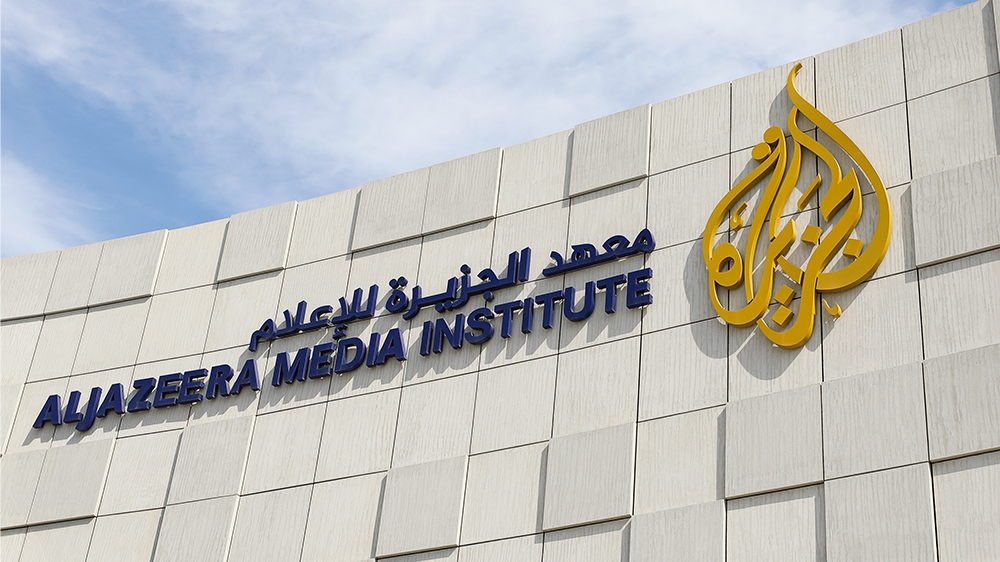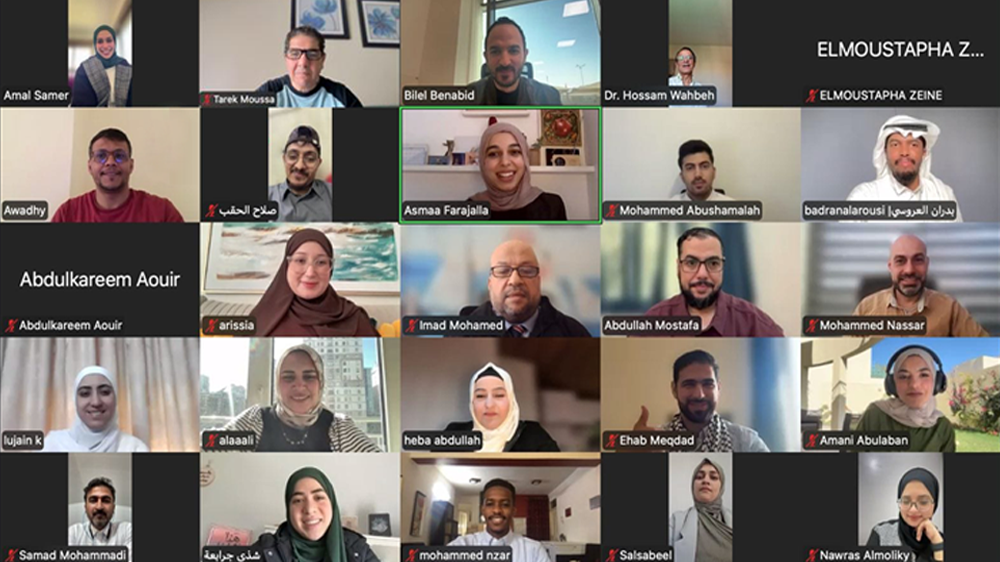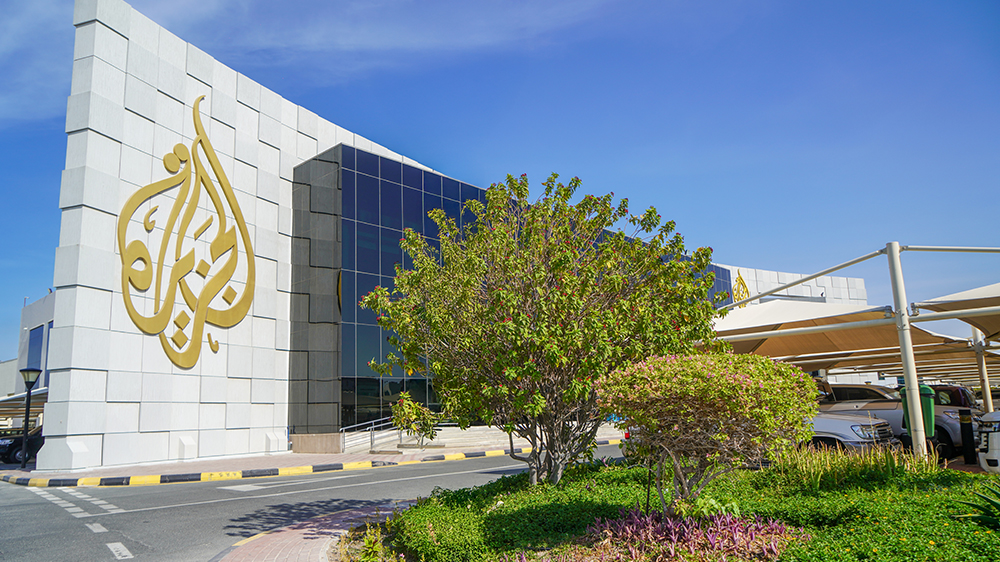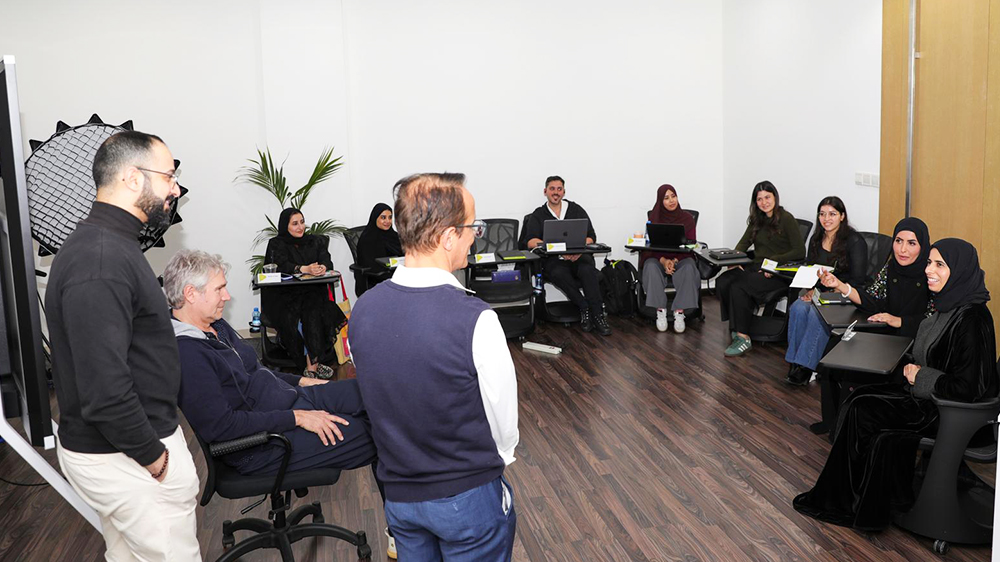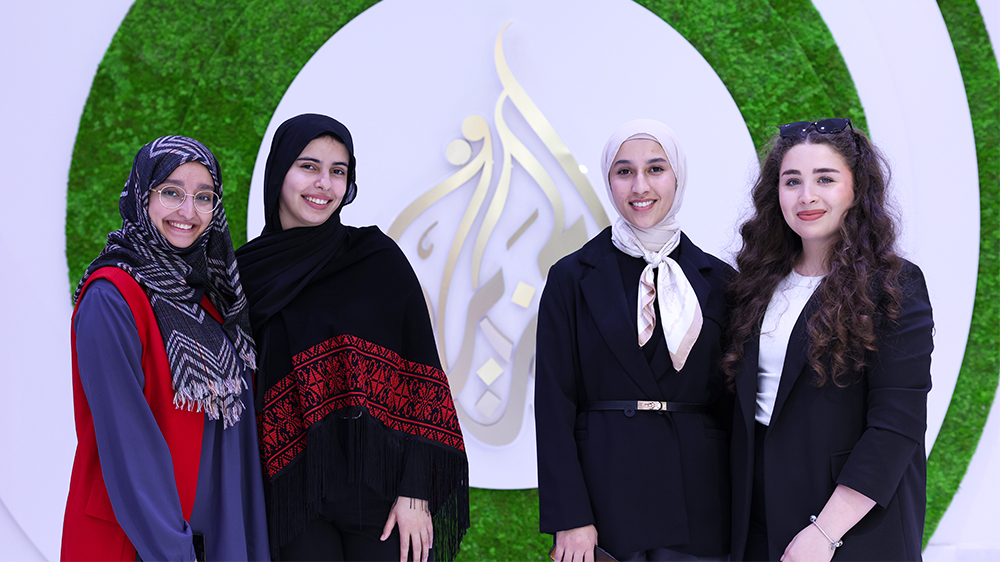News & Events
AJMI hosts a forum on journalism viability during genocide and information disorder
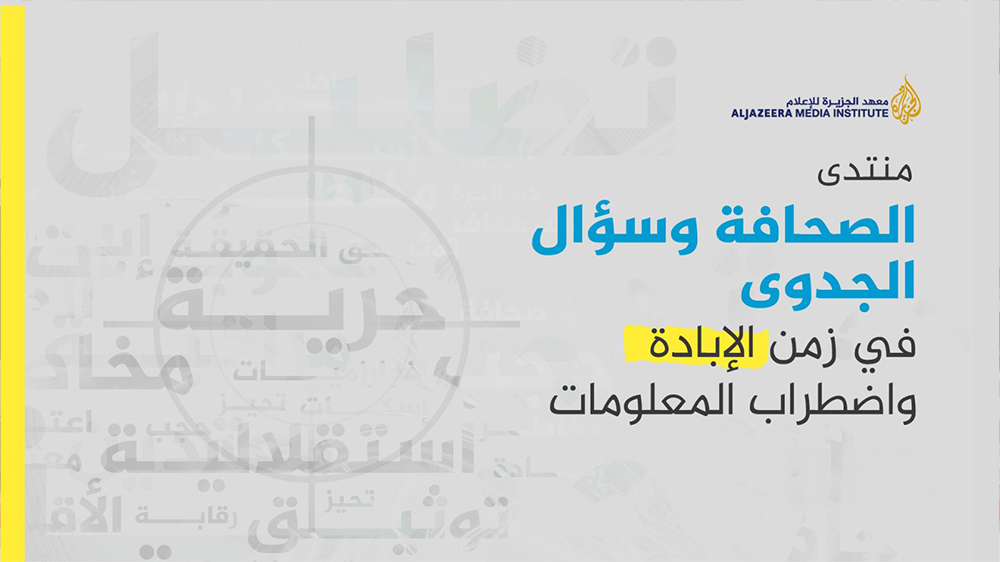
AJMI -Doha
The proceedings of the forum, organised by the Al Jazeera Media Institute via the Zoom application on 4 and 5 May 2025, are set to commence with contributions from a selection of journalists, researchers, and advocates for freedom of expression from the Arab world. The forum comes to light amid increasing targeting of journalists and the rise of disinformation and fabricated information campaigns, especially in the coverage of the aggression on Gaza.
The forum, which is organised to coincide with World Press Freedom Day, begins with an opening speech presented by Dr. Mostefa Souag, the acting director-general of the Al Jazeera Media Network, followed by a panel discussion entitled ‘Journalists Under Fire Line‘. The session includes media professional Wael Al-Dahdouh, bureau chief of the Al Jazeera in Gaza, who will shed light on the existential threats facing journalists in conflict zones. The session will discuss issues of murder, incitement, and imprisonment on charges related to expression of opinion, in light of the international community's disregard to hold war crime perpetrators accountable, despite their documentation by journalists both visually and audibly.
The forum addresses many urgent issues such as the question of the relevance of celebrating World Press Freedom Day, and the role of journalists in documenting war crimes, with participation from researchers from the Al Jazeera Centre for Studies, the Al Jazeera Centre for Public Liberties and Human Rights, and international organisations including Reporters Without Borders, the Syrian Network for Human Rights, and the Committee to Protect Journalists in the Middle East and North Africa. The sessions also explore ways to end impunity and the documentation tools adopted by international courts.
In a session entitled ‘Journalism in the Age of Information Disorder‘, participants will review practical experiences in information verification and fact-checking, such as the Refutation, Verify, and Echo Social platforms. The speakers discuss the role of social media platform algorithms in misleading public opinion by flooding various digital platforms with misleading information, and the implications of this on the public's trust in the media. The session focuses on the importance of ethical fact-checking as a professional necessity based on impartiality, objectivity, accuracy, and transparency.
The first day of the forum features two concurrent workshops: the first, in Arabic, entitled ‘How do Journalists Document War Crimes?‘. And the second will be in English entitled ‘Open-Source Intelligence Investigations’. These workshops aim to train journalists on the tools and mechanisms of uncovering crimes and documenting them professionally.
As for the second day, it commences with a discussion session on the right to access information, with the participation of investigative journalists and experts from Tunisia, Morocco, and Jordan. The session will shed light on the legislative framework governing the right to information in the Arab world and enhancing freedom of expression and improving the quality of journalistic work.
Following this, a session will address the transformation of the press from holding power accountable to monitoring the media outlets positioning themselves as mouthpieces for institutions and influential figures, at the expense of public interests and ethical considerations.
The forum concludes with two workshops led by specialised professionals. The first workshop is in Arabic entitled ‘Introduction to Investigative Journalism’. The second workshop is in English titled Media Bias, and it will address ways to uncover media bias and means of overcoming it professionally and ethically.
Following the forum, an open discussion will provide an opportunity to discuss the challenges facing the journalism profession amidst the shadow of collective impunity and accountability deficits. It will also highlight the seriousness of the work of the journalist in environments plagued by impunity and the silencing of dissenting voices, while the debate continues around the safety of journalists in defending their causes.
